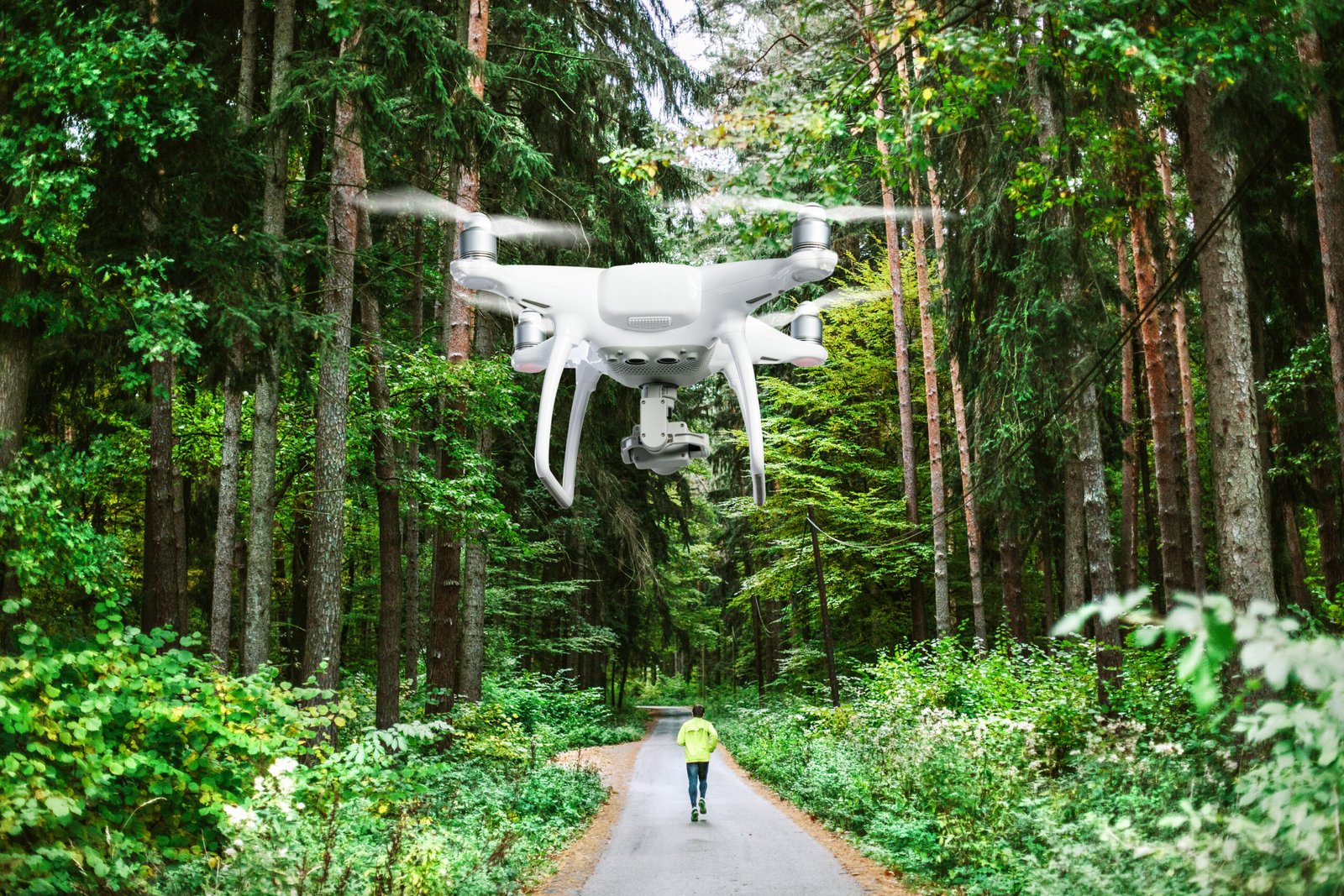aviation training
Soaring High: The Future of Aviation and Sustainable Travel
As we ascend into the future of aviation, the intersection of technology and sustainability is reshaping how we perceive air travel. With advancements in training techniques, innovative online resources, and the burgeoning use of drones, there’s much to explore. Let’s delve deeper into the exciting world of aviation.
*Aviation Training: A Leap into Technology**
The flight training landscape is undergoing a revolution thanks to cutting-edge simulators. These sophisticated tools replicate real-world flying conditions while providing a safe environment for budding pilots to hone their skills. Modern flight simulators come equipped with virtual reality features, offering immersive experiences that closely mimic actual aircraft handling. This leap in technology not only enhances learning but also reduces costs associated with traditional flight training.
For those eager to dive into the field, a plethora of online courses and ground schools are available. Platforms like Coursera and Udemy offer comprehensive modules tailored for aspiring aviators—covering everything from aviation regulations to navigation techniques. Moreover, specialized programs provide invaluable insights into commercial pilot certifications and advanced ratings.
*Navigating through Aviation Resources**
In addition to formal education, staying informed about industry trends is crucial for anyone in aviation. Numerous blogs and websites serve as treasure troves of knowledge for enthusiasts and professionals alike. Here’s a shortlist you might find handy:

1. **Aviation Week** – A leading source for news on aerospace technology.
2. **Airline Reporter** – Offers insider perspectives on the airline industry.
3. **Flyaway Simulation** – Focuses on flight simulation software reviews.
4. **PilotWorkshops.com** – Provides practical tips straight from experienced pilots.
5. **The Air Current** – Delves deep into analysis about commercial airlines.
Social media platforms have also become hubs for aviation discussions; Twitter accounts like @FlyingMagazine or Instagram profiles showcasing breathtaking aerial photography can inspire your journey in this field.
*Career Opportunities: Pilots Wanted!**
With the demand for qualified pilots on an upward trajectory, now is an excellent time to consider a career in aviation. From regional airlines to international carriers, opportunities abound across various sectors including cargo transport and charter services. Aspiring pilots can explore job openings through websites such as Pilot Career Centre or AirlinePilotCentral.com—where you’ll find everything from entry-level positions to more advanced roles.
Moreover, networking within online communities can yield fruitful connections as you embark on your journey towards becoming a licensed pilot.
*Drones: The New Frontier**
The rise of drone technology represents another pivotal shift within the aviation sector. Not just toys for hobbyists anymore, drones are increasingly used in agriculture, surveying, search-and-rescue missions, and even delivery services! As regulations evolve under entities like the FAA (Federal Aviation Administration), opportunities within this niche are expanding rapidly.
To stay updated on drone regulations or seek guidance on obtaining licenses (like Part 107), check out essential FAA links that provide comprehensive resources tailored specifically for drone operators.
In conclusion, as we navigate this era defined by technological advancements and sustainable practices within aviation, one thing remains certain: the sky’s no longer just the limit—it’s merely the beginning! Embrace these changes wholeheartedly; whether you’re considering a career as a pilot or simply seeking knowledge about flying technologies—there’s never been a better time to take off!

Jet Setters: Exploring the Benefits of Private Aviation
In an era where time is increasingly precious, private aviation stands out as a beacon of efficiency and luxury. The convenience of flying on your schedule, avoiding crowded terminals, and experiencing personalized service makes it a preferred choice for many business executives and leisure travelers alike. But beyond the plush cabins and quick getaways lies a fascinating world powered by cutting-edge technology and training innovations that are transforming the aviation landscape.
*Aviation and Technology Training**
At the heart of this transformation is a robust emphasis on aviation technology training, which has become vital for aspiring pilots and industry professionals. Modern flight simulators play an essential role in preparing pilots for real-world scenarios without leaving the ground. These sophisticated devices replicate various flight conditions—from adverse weather to emergencies—allowing trainees to hone their skills safely. This immersive experience not only boosts confidence but also significantly reduces risks associated with piloting aircraft.
*Discovering Online Resources**
For those looking to dive deeper into the world of aviation, numerous blogs, websites, and social media platforms are available to quench your curiosity. Some standout blogs include:
1. **Fighter Sweep** – A blog focused on military aviation.
2. **Airline Reporter** – Offers insights into commercial airlines.
3. **The Points Guy** – Focuses on travel tips that often intersect with private flying benefits.
Websites like Aviation Week provide industry news, while social media platforms like Instagram and Twitter have vibrant communities sharing stunning aerial photography or discussing technological advancements in flight.
If you prefer video content, YouTube channels such as “Mentour Pilot” or “Captain Joe” demystify complex topics through engaging visuals—perfect for visual learners.
*Online Aviation Courses and Ground Schools**
The rise of online education has revolutionized how aspiring pilots can acquire necessary certifications. Numerous institutions offer online courses tailored specifically for ground school training, covering everything from aerodynamics to navigation techniques. Websites like Sporty’s Academy or Pilot Institute provide comprehensive curricula that students can access at their convenience.

In addition to pilot training, these programs often connect students with job opportunities in the aviation sector upon completion—a significant advantage in a competitive field where connections matter just as much as qualifications.
*The Rising Influence of Drones**
Another exciting facet of modern aviation is the burgeoning drone industry. With applications ranging from photography to delivery services, drones have carved out their niche in both commercial sectors and personal usage. Understanding FAA regulations is critical here; resources such as the official FAA website offer guidance on licensing requirements and operational rules for drone enthusiasts.
Drones also pave new paths for jobs within aviation—think drone operators or maintenance technicians—as businesses increasingly explore innovative uses for UAVs (unmanned aerial vehicles).
*Connecting with Industry Resources**
To further enhance your knowledge about private aviation and its myriad fields, consider bookmarking essential FAA links that provide updates on regulations, safety protocols, and new initiatives shaping air travel today.
In conclusion, whether you’re an ambitious pilot-in-training or simply someone enamored by all things airborne, private aviation offers more than just luxurious escapes—it opens doors to rich educational resources and career opportunities while embracing cutting-edge technologies like never before. So why not strap in? The sky isn’t just a limit; it’s an invitation waiting to be explored!
Navigating the Skies: A Look at the Evolution of Air Travel
The story of aviation is one that soars with innovation and progress. From the Wright brothers’ first flight in 1903 to today’s high-tech jetliners, air travel has transformed dramatically over the years. Central to this evolution is the intersection of aviation and technology, particularly in areas like training, simulation, and online education.
Modern pilots no longer rely solely on traditional methods of instruction. Instead, they immerse themselves in advanced flight simulators that replicate real-world flying conditions. These state-of-the-art machines offer an unparalleled opportunity for trainees to hone their skills without ever leaving the ground. With realistic controls and immersive environments, simulators are invaluable tools for both novice pilots and seasoned professionals looking to sharpen their abilities or learn new aircraft systems.
For those passionate about aviation who want to stay informed or connect with others in the field, a plethora of resources exists online. Numerous blogs and websites cater to various aspects of aviation — from pilot training tips to industry news. Some popular blogs include “The Aviationist,” which covers military aviation stories; “Airline Pilot Life,” offering insights from professional pilots; and “Flying Magazine,” a treasure trove of advice for general aviators. Social media platforms also serve as excellent venues for networking and sharing knowledge. Twitter accounts like @AvGeekNation highlight fascinating aerial content while Facebook groups connect fellow enthusiasts across the globe.
Education is another cornerstone of modern aviation. With advancements in technology comes a rise in online courses designed specifically for aspiring aviators. Ground schools now offer flexible learning options through e-learning modules covering everything from navigation techniques to weather patterns. Institutions such as Embry-Riddle Aeronautical University and Purdue University provide comprehensive programs that can be completed remotely, making it easier than ever for individuals keen on pursuing careers as pilots or other aviation professionals.
As we delve deeper into this world, we cannot overlook the rapid proliferation of drones—unmanned aerial vehicles that have carved out their own niche within aviation. Drones are not just toys; they’re transforming industries ranging from agriculture to filmmaking by providing innovative solutions previously considered impractical or too costly. The Federal Aviation Administration (FAA) plays a crucial role here, establishing regulations that govern drone operations while ensuring safety within national airspace.
Aspiring pilots should familiarize themselves with FAA resources available online—such as their official website—which provides information on licensing requirements, safety guidelines, and updates regarding regulations affecting both manned aircraft and drones alike.
As technology continues its relentless march forward, opportunities abound within the aviation sector—from piloting commercial airlines to operating sophisticated drones or even working behind-the-scenes in maintenance roles. The demand for qualified personnel remains strong; thus job seekers equipped with proper training stand poised for success.
In summary, navigating today’s skies means embracing change through technological advancements while continuing an age-old passion for flight. By exploring diverse educational avenues—be it through simulator training or online courses—and staying connected via blogs and social media channels, anyone can embark on an exciting journey into this dynamic field where innovation meets adventure every day!

Aviation Innovations: How Drones Are Revolutionizing Delivery Systems
In an age where speed and efficiency reign supreme, the aviation industry is undergoing a transformation that promises to redefine logistics. At the forefront of this change is drone technology, ushering in a new era of delivery systems that are not only faster but also more sustainable. As we delve into this revolution, it’s crucial to understand the interplay between aviation training and the burgeoning world of drones.
To begin with, proper training remains paramount in ensuring safety and effectiveness within aviation. The advent of sophisticated flight simulators has made it easier for aspiring pilots and drone operators to hone their skills without ever leaving the ground. These simulations provide realistic environments that replicate various conditions pilots might face, from turbulent weather to emergency scenarios. This immersive experience fosters better decision-making skills while minimizing risks associated with traditional flight training.

For anyone looking to stay updated on aviation trends or seeking valuable resources, the internet offers a wealth of information through dedicated blogs and websites. Some notable mentions include Aviation Week Network, which covers everything from aerospace technology to defense; Flying Magazine, renowned for its insightful articles on pilot experiences; and The Drone Girl blog which focuses specifically on drone innovations. Social media platforms like Twitter and Instagram also serve as vibrant hubs for aviation enthusiasts. Follow hashtags such as #DroneDelivery or #AviationNews for real-time updates from industry experts and hobbyists alike.
Moreover, educational opportunities abound for those eager to explore careers in aviation or deepen their knowledge about drones. Numerous online courses cater to both novice learners and seasoned professionals looking to enhance their skills. Websites like Coursera or Udemy offer specialized programs ranging from basic piloting techniques to advanced UAV operations—perfectly blending theoretical knowledge with practical application.
Ground schools play an essential role too, providing structured learning environments where students can gain foundational knowledge before stepping into aircraft cockpits or controlling drones. These institutions cover critical areas such as air traffic regulations, navigation principles, meteorology, and more—ensuring that future aviators are well-prepared for any challenge they might encounter.
As demand grows for unmanned aerial vehicles (UAVs), so do job opportunities within this exciting sector. Drone pilots are increasingly sought after in industries ranging from agriculture to real estate photography and package delivery services. Companies are leveraging UAVs not only for their speed but also for their ability to access hard-to-reach areas safely and cost-effectively.
The Federal Aviation Administration (FAA) plays a vital role in regulating these advancements within drone technology. Their guidelines ensure that drone operations maintain safety standards while fostering innovation in commercial applications. For those interested in pursuing a career related to drone usage or simply wanting robust information on regulations, visiting FAA’s website is invaluable.
In conclusion, we stand at a pivotal moment in aviation history where drones are reshaping delivery systems around the globe. With continuous advancements in technology paired with comprehensive training programs designed for both traditional pilots and aspiring drone operators, the sky is not just the limit—it’s merely the beginning! Whether you’re contemplating a career shift into aviation or simply fascinated by these flying machines’ potential impact on daily life , now is undoubtedly an exciting time to get involved!
Sky High Careers: Exploring Job Opportunities in the Aviation Sector
The aviation industry has long captivated dreamers and doers alike, offering a plethora of career paths that soar high above traditional jobs. With advancements in technology, the landscape of aviation is evolving rapidly, providing exciting opportunities for aspiring professionals. Whether you’re drawn to the cockpit as a pilot or prefer working behind the scenes, there’s a place for you in this dynamic field.
*Aviation and Technology Training: The Foundation of Your Career**
As with any profession, education is paramount in aviation. Various training programs integrate cutting-edge technology to prepare individuals for their future roles. Flight simulators have revolutionized pilot training by allowing students to experience real-world flying scenarios without leaving the ground. These high-tech devices replicate cockpit environments and flight conditions, ensuring pilots are well-prepared for any situation they may encounter.
Beyond piloting, many positions in aviation require specialized technical training. Mechanics and engineers must be proficient with modern aircraft systems and maintenance protocols. Therefore, enrolling in accredited programs that focus on both theoretical knowledge and practical application is essential.
*Online Aviation Courses and Ground Schools: Bridging Knowledge Gaps**
With the rise of online education platforms, obtaining an aviation-related certification has never been more accessible. Numerous online courses cover everything from basic flight principles to advanced aerodynamics. Ground schools offer comprehensive training that prepares pilots for their written exams while also enhancing their understanding of air traffic control procedures and regulations.
For those interested in becoming commercial pilots or private aviators, many institutions provide tailored courses that address specific needs within the industry. This flexibility allows you to learn at your own pace while managing other life commitments.
*Drones: A New Frontier**
In recent years, drones have emerged as a game-changer within aviation. They are not just toys; these unmanned aerial vehicles (UAVs) are being used across various sectors such as agriculture, filmmaking, logistics, and surveillance. This burgeoning field has created numerous job opportunities ranging from drone operators to regulatory specialists who ensure compliance with FAA guidelines.
As drone technology continues to evolve, so do career prospects related to it. Pilots looking for innovative avenues can explore roles within companies developing drone delivery services or even start their own UAV-focused enterprises.

*Connecting Through Online Communities**
Staying updated on industry trends is crucial for anyone serious about pursuing an aviation career. To help guide your research journey, here’s a list of valuable resources:
**Aviation Blogs:** Websites like *AirlineReporter.com* and *FlyingMag.com* offer insights into current events and innovations.
**Social Media Groups:** Platforms such as Facebook host numerous groups dedicated to aspiring pilots or enthusiasts sharing experiences.
**Professional Associations:** Organizations like the Aircraft Owners & Pilots Association (AOPA) provide forums where members can network and exchange ideas.
Additionally, following hashtags such as #AviationJobs or #DronePilot on Twitter can help you discover real-time discussions around job openings or emerging technologies.
*FAA Resources: Navigating Regulations**
For those considering careers involving piloting or drone operations, familiarity with Federal Aviation Administration (FAA) regulations is vital. Their official website offers extensive resources including guides on licensing requirements for pilots and essential information regarding drone operation standards.
In conclusion, if you’re aiming sky-high when it comes to your career aspirations in aviation, rest assured there are myriad pathways available—each filled with excitement and potential growth! Whether through rigorous training programs or innovative technologies like drones, your journey in this field promises adventure at every turn!




